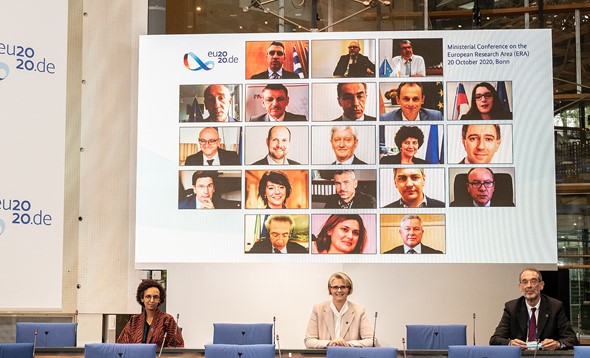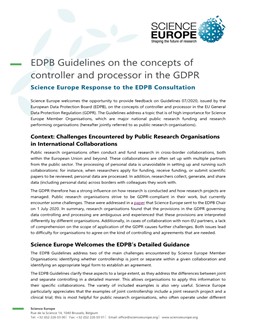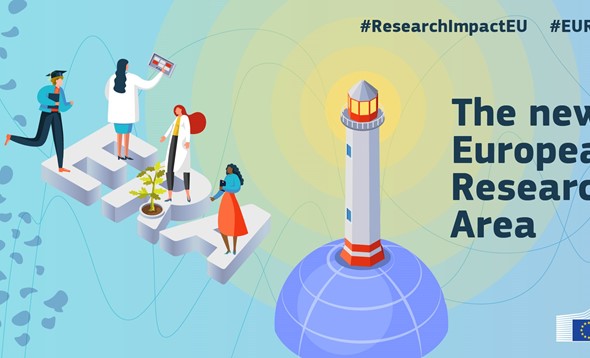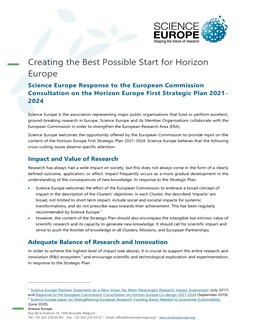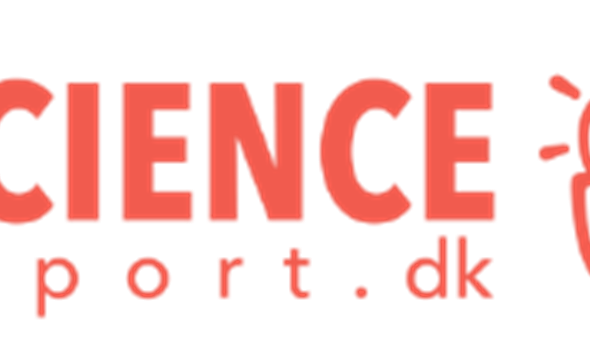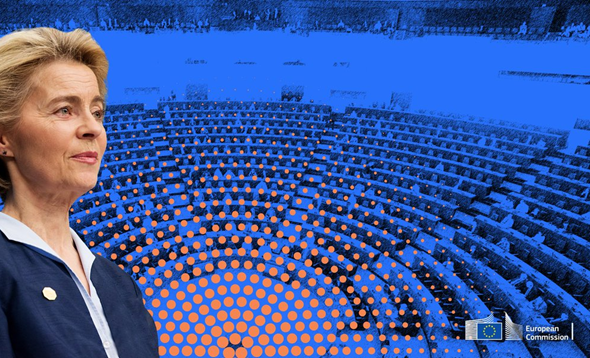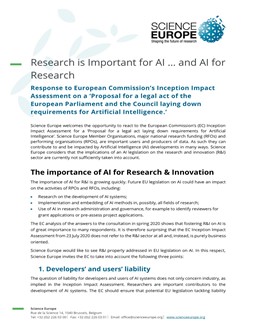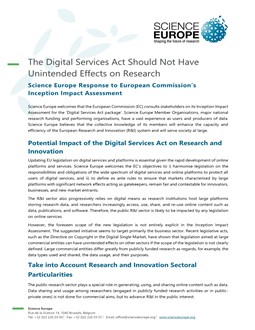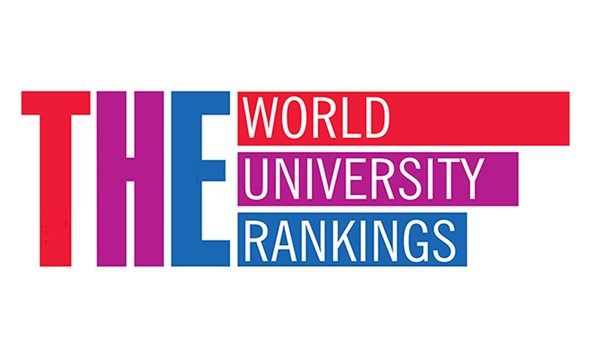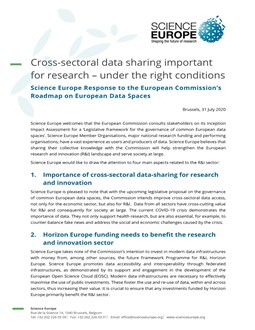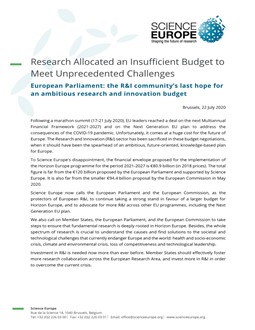"Horizon Europe: If we mess this up we are putting our future at stake!"
Together with LERU, EUA, EARTO, and the Vice-Presidents of the European Research Council (ERC), we join MEP Christian Ehler from the EEP Group in his call to match the Green & Digital goals with a budget fit for this age.




